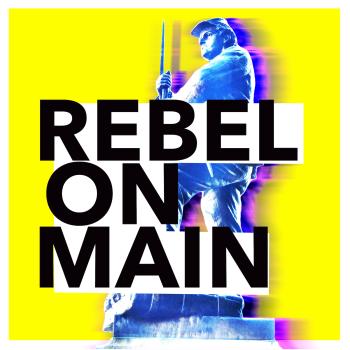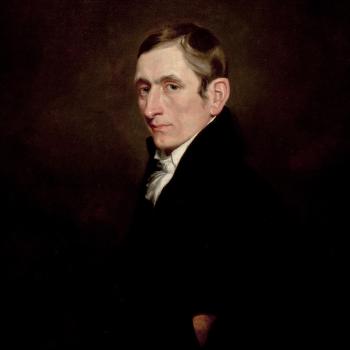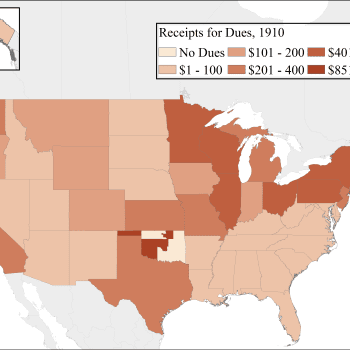I have been reading Molly Oshatz’s thought-provoking new book Slavery and Sin: The Fight against Slavery and the Rise of Liberal Protestantism. Oshatz argues that the theological difficulties surrounding antebellum slavery gave rise to beliefs that became “hallmarks of liberal Protestant theology: God’s revelation unfolded progressively through human history, moral action had to be considered in its historical and social context, and the ultimate source of Protestant truth was the shared experience of believers rather than the letter of the biblical text.” These beliefs, of course, clashed with stronger views of biblical inspiration and inerrancy, a doctrine I discussed in a recent post.
There’s no more difficult topic in American theological history than the antebellum slavery debates. As Eugene Genovese, Elizabeth Fox-Genovese, Mark Noll, and others have shown, conservative Protestants employed a “commonsense, literal hermeneutic” that made it hard for them to condemn slavery “in the abstract.” On the face of it, the Bible seemed to tacitly accept slavery. But many northerners believed they could craft an antislavery argument by focusing on the “golden rule,” the equality of all humankind before God, and the specific abuses inherent in the American slave system.
Oshatz offers an empathetic portrayal of moderate northern antislavery advocates – like Brown University’s Francis Wayland – who sought to make this argument without denigrating the literal authority of Scripture, as some radical abolitionists like Gerrit Smith and William Lloyd Garrison did. Smith insisted that the ideals of liberty trumped the text of Scripture. “Slavery is not to be tried by the Bible, but the Bible by freedom,” he said.
Oshatz shows that proslavery advocates wanted to keep all the focus on slavery “in the abstract,” and not quibble about the immoral practices endemic to the slave system, from violence to the indiscriminate breakup of families. If the Bible accepted any form of slavery, then southern Christian slave masters could practice that acceptable form, proslavery theorists said. Slaveholders only needed to obey God’s commands and treat their slaves well. Abuses were possible in any social system, they acknowledged, but that only spoke to the universality of human sin, not the inherent immorality of slave owning.
Wayland and other antislavery moderates were forced to argue on the basis of the “principles” and “spirit” of the Bible, as much as its actual text, to call for an end to slavery. (Proslavery writers such as Thornton Stringfellow called these “feelings and sentiments unknown to the Bible.”) Yet questions remained – if slavery per se is an immoral system, why did the Bible not explicitly say so? Where’s the “Thou shalt not own slaves” verse? Why did so few Christians realize slavery was immoral until the 18th century?
The antislavery Christians contended that God, in His providence, knew that ending slavery in the apostolic period was impossible, and trying to do so would have hampered the expansion of the gospel. Instead, God revealed principles such as the golden rule that did not immediately abolish slavery, but would eventually inspire its eradication. In that appeal to moral progress over time, Oshatz argues, lay the seeds of liberal Protestantism.
Mark Noll has argued that the chief difficulty in the commonsense, literal hermeneutic was the fallenness of “common sense.” We often fail to see how time, place, and prejudice shape common sense. And even the most conservative Bible interpreter must interpret and infer from Scripture regarding issues on which it is largely silent (abortion, for instance). Applying a system of ethics from Scripture does not entail liberalism. But the crisis over slavery, and American interpreters’ inability to achieve consensus on that pressing topic prior to the Civil War, was a shock to the American biblicist mind. It was a shock from which American Christians have never fully recovered.
For more on this topic, see among others Noll’s America’s God and The Civil War as a Theological Crisis, and the Genoveses’ The Mind of the Master Class.












